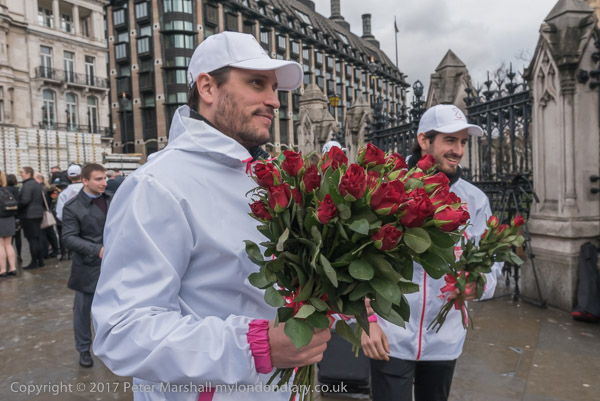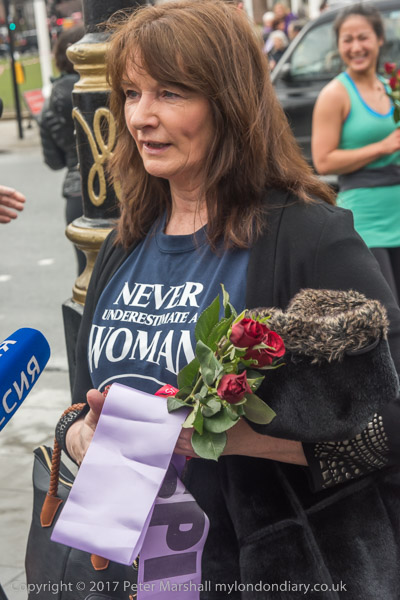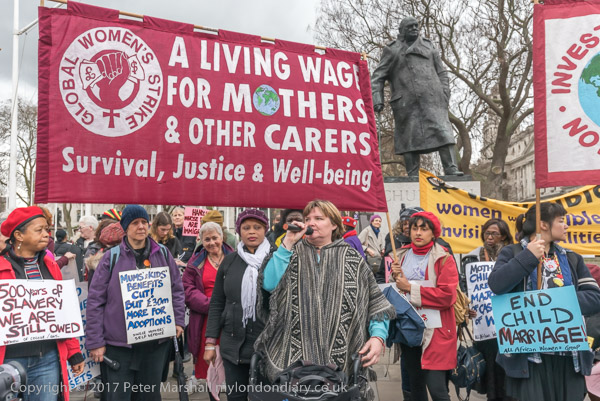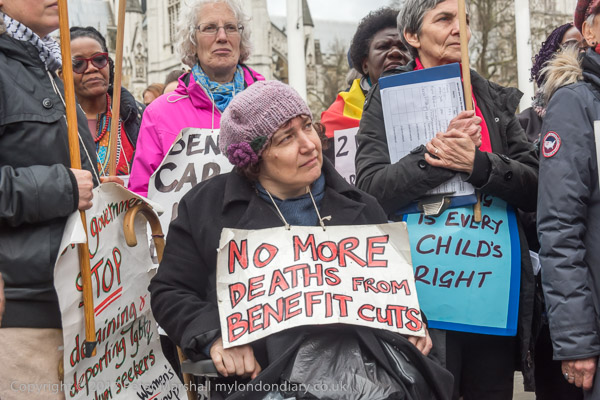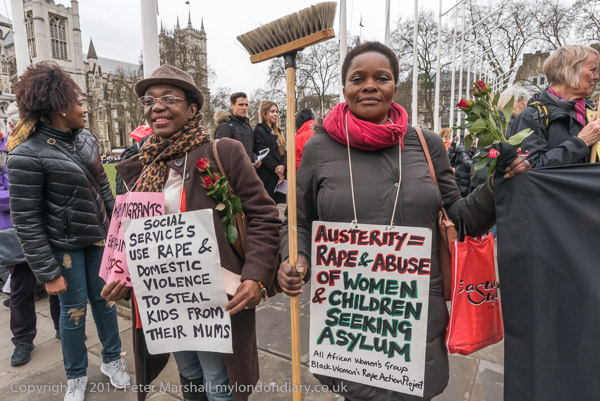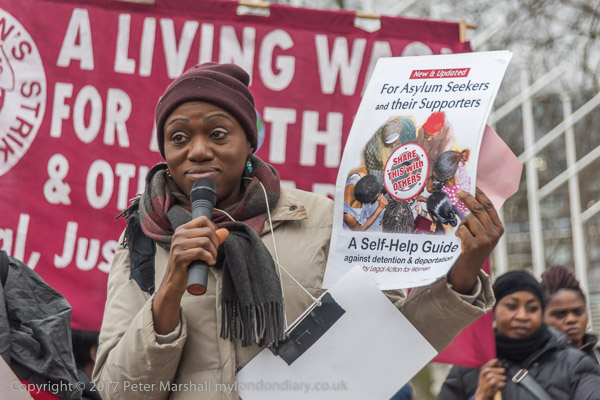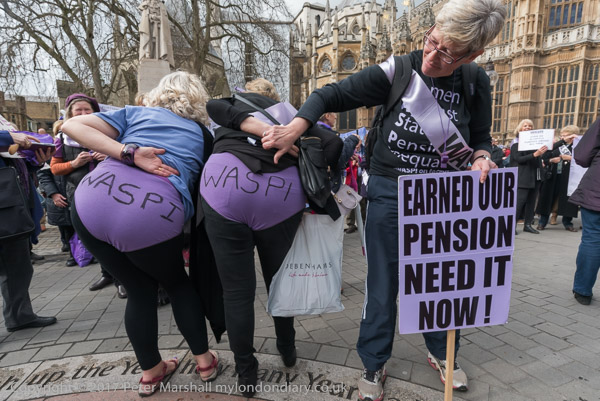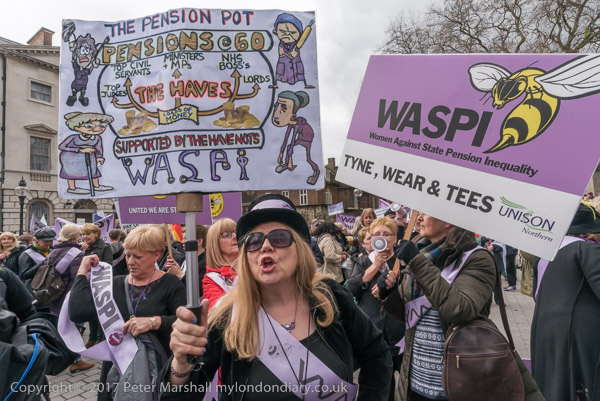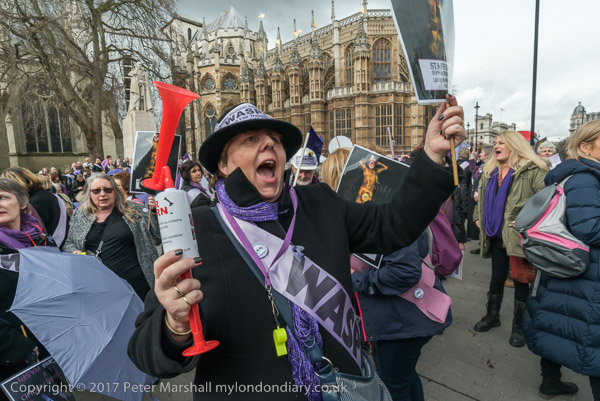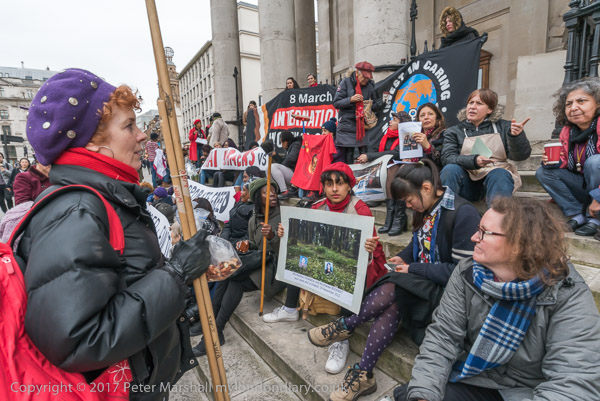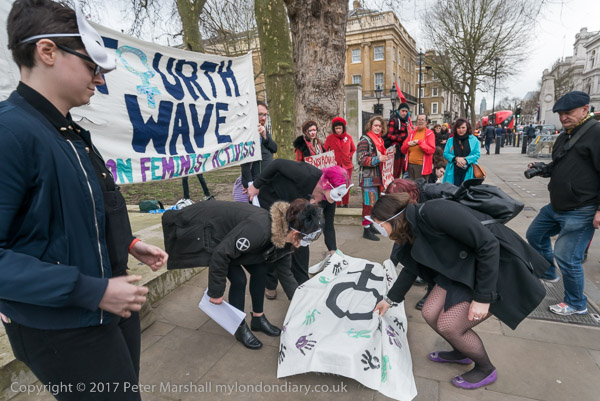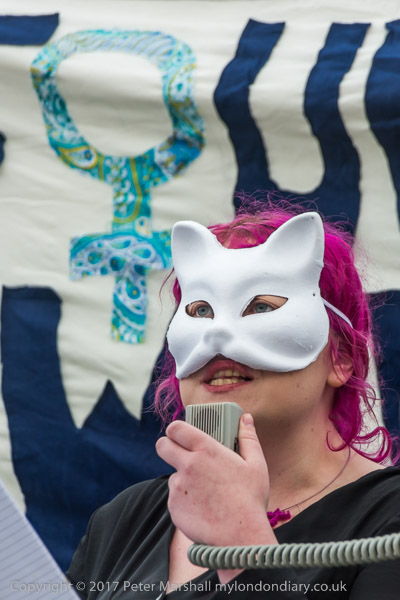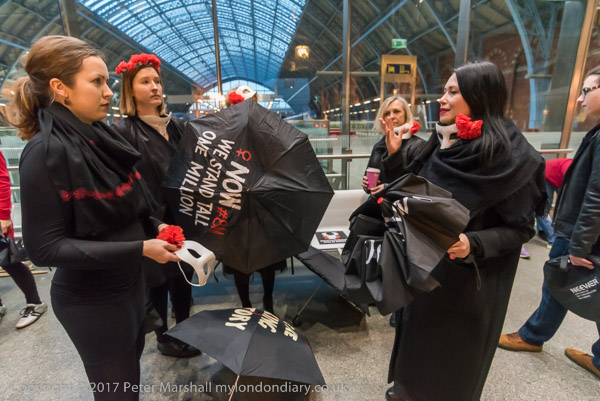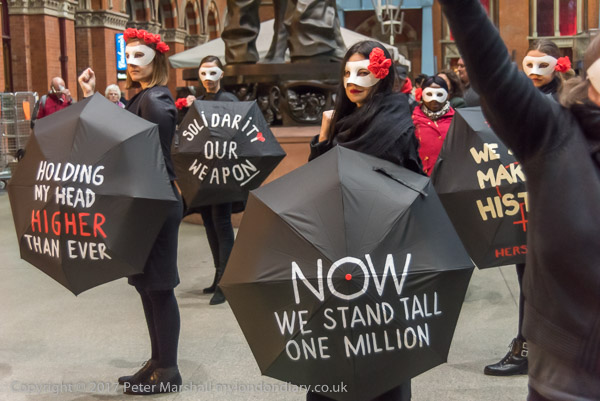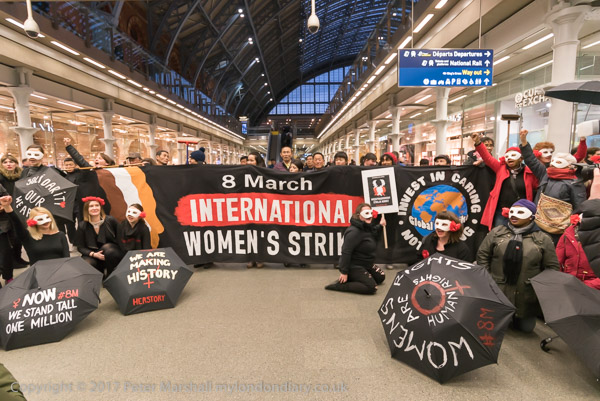British Gas & Independent Living: Two protests on Monday 12th May 2014 in Westminster. the first about fuel poverty and climate change and the second over plans to end the Independent Living Fund which enabled many disabled people to continue to work and have an independent life.
Bin British Gas – QEII Centre, Westminster
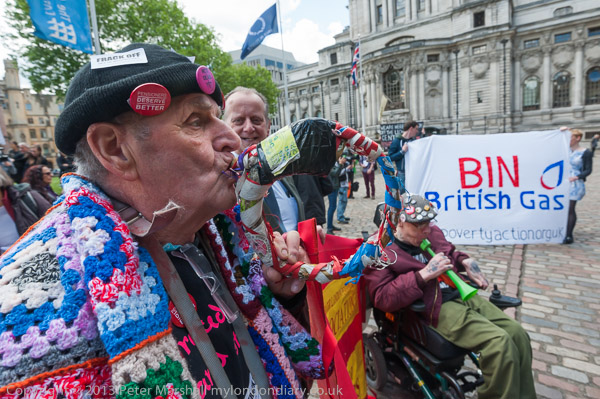
British Gas were holding their AGM in the QEII centre and a protest outside demanded they stop profiteering from high energy prices and end support for fracking.
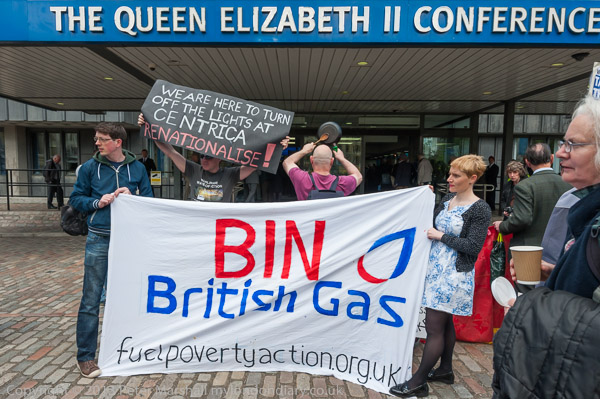
The protest was called by Fuel Poverty Action who say there were over 10,000 extra deaths last winter because people were unable to heat their homes, while Centrica, the parent company of British Gas, made £2.5 billion in 2013. While they raised gas prices by 10.4% and electricity by 8.4%.
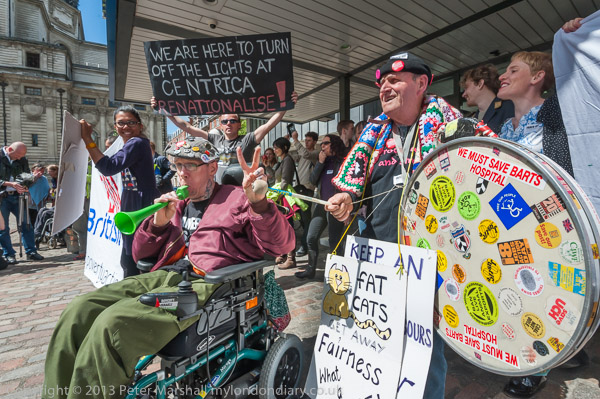
They also called for government and energy companies to end support for fracking which as well as threatening water supplies in the UK would also lead to more climate-wrecking carbon dioxide emissions.
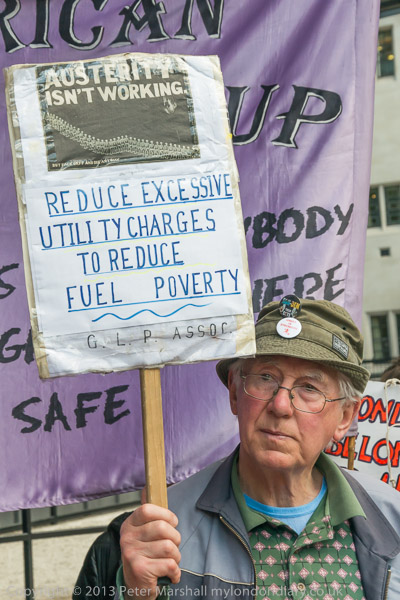
The campaigners called for greater investment in renewable energy, which in the long term will result in cheaper energy and will help us tackle climate change. But this isn’t popular with the big six energy companies (and the government which is led by their lobbyists) as it enables greater local generation and control of energy, threatening their monopoly of energy production and profits.

At the protest were representatives from fuel poverty, pensioner, climate, housing groups and renewable energy co-operatives. After a number of speeches including from Green Party leader Natalie Bennett, Paula Peters of Disabled People Against Cuts, people came together too tear up British Gas energy bills.
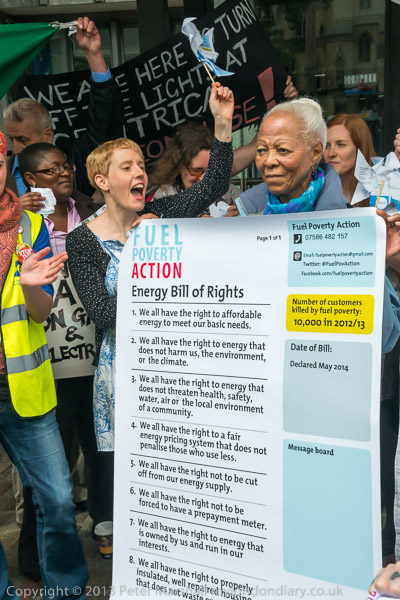
A giant bill was torn up and Lambeth pensioner, Ellen Lebethe, brought out a poster-size Fuel Poverty Action ‘Energy Bill of Rights.’
- We all have the right to affordable energy to meet our basic needs.
- We all have the right to energy that does not harm us, the environment, or the climate.
- We all have the right to energy that does not threaten health, safety, water, air, or the local environment of a community.
- We all have the right to a fair energy pricing that does not penalise those who use less.
- We all have the right not to be cut off from energy supply.
- We all have the right not to be forced to have a prepayment meter.
- We all have the right to energy that is owned by us and run in our interests.
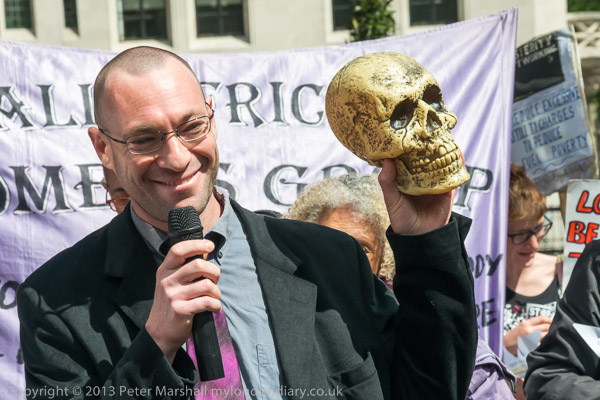
Inside the Centrica AGM, a member of Reclaim Shakespeare Company had stood up holding a can of beans and a skull to read a version of Hamlet’s iconic monologue, entitled “To Heat or Eat, that is the question”, and this was read out at the protest. Shortly after the actor came out from the building to tell us about what had happened inside.

The protest ended with people planting 100 small windmills made from folded British Gas bills in the grass outside the QEII centre.
More pictures at Bin British Gas.
Save Independent Living Fund – Dept of Work & Pensions
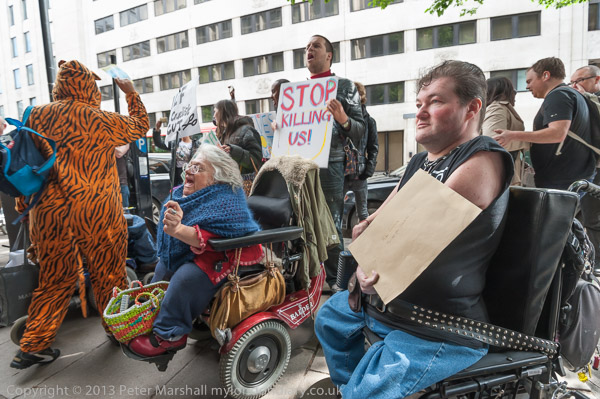
The Independent Living Fund (ILF) was set up in 1988 under the Thatcher government to provided financial support to some of the most severely disabled people in the UK. Its main use was to enable them to have carers and personal assistants so they could live in their communities and for many to continue in useful employment.
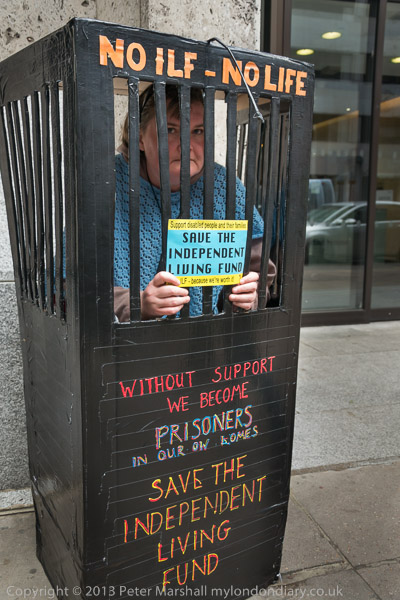
The ILF was administered by a separately funded body and was highly cost-effective, providing support at much lower costs than residential care as well as enabling those receiving support to live independent lives Around 18,000 people were being assisted by the fund in 2014.
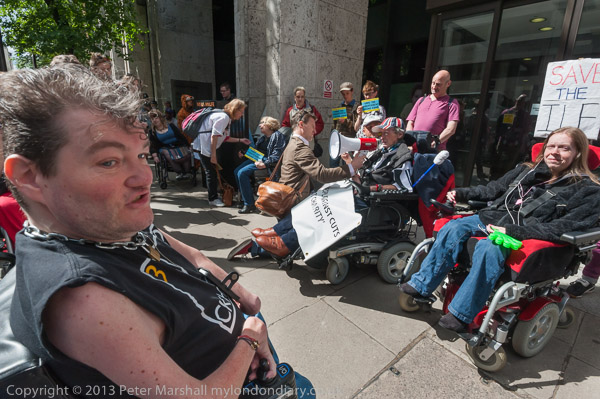
When the government announced it was scrapping the scheme in England in 2010 it was met with protests by disabled people and in 2013 was taken to court. The government won the case that its decision was lawful, but lost in the Court of Appeal.
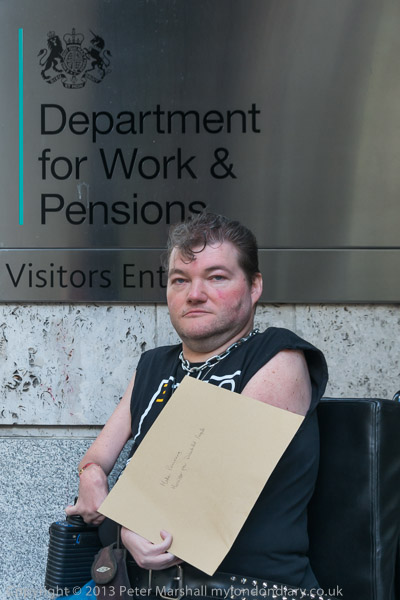
A revised proposal was then made by the government to announce once again in March 2014 that ILF would close. A fresh legal challenge failed in December 2014 and the scheme ended in June 2015, with responsibility for supporting disabled people being passed to local authorities who were given funding roughly 12% less than the ILF – and which was not ring-fenced.
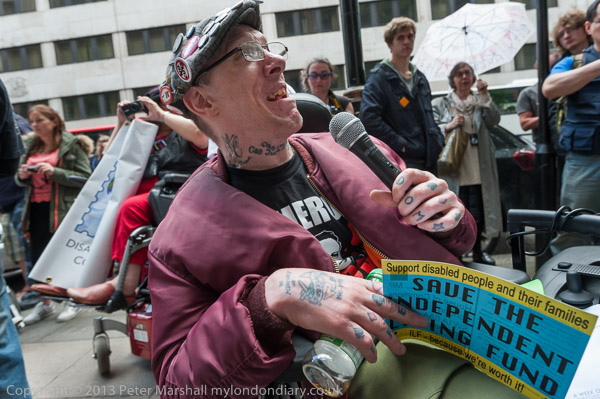
Police tried to persuade the protesters to keep to a small area well to one side of the Dept of Work & Pensions but they refused and protested in a larger space in front of the two main doors, which were both locked for the event.
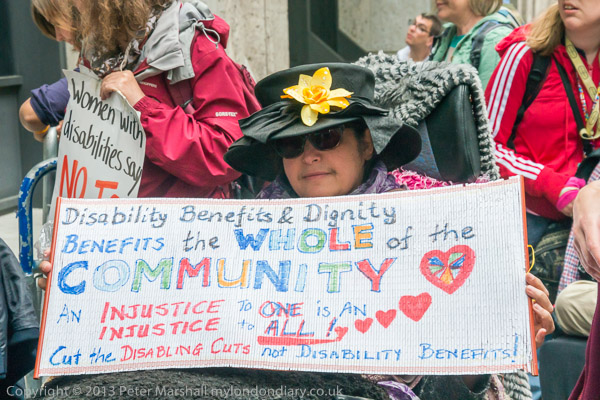
At the centre of the protest was a small cage, with the message ‘NO ILF – NO LIFE‘ across its top, and below the barred window ‘Without Support We Become Prisoners In Our Own Homes – Save the Independent Living Fund’. Squeezed into this was Paula Peters of DPAC, Disabled People Against Cuts, the group who had organised the protest.

A number of people told their ‘ILF stories‘ of how the fund had helped them and how they feared its closure would seriously limit their lives. DPAC tried to deliver a letter to Minister for the Disabled Mike Penning but were refused entry to the building and no one from the department was prepared to come and receive it.
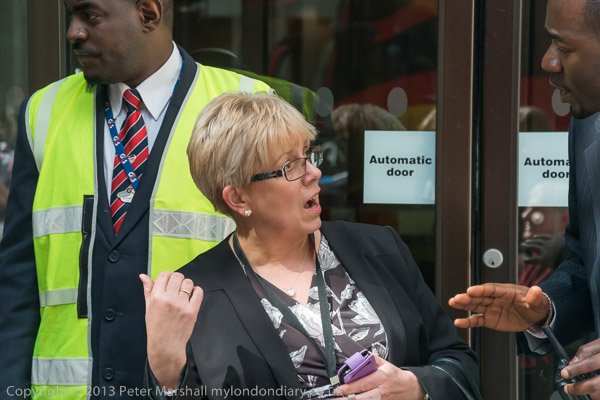
One of the protesters who had travelled from Newcastle phoned her MP from here wheelchair outside the DWP, and Mary Glindon, the Labour MP for North Tyneside came down to support the protest. She failed to get DWP security to let the protesters deliver their letter but offered to deliver it for them. She was let in through a side entrance to do so then came out and spoke briefly giving her support to the protest.
More at Save Independent Living Fund.
Flickr – Facebook – My London Diary – Hull Photos – Lea Valley – Paris
London’s Industrial Heritage – London Photos
All photographs on this page are copyright © Peter Marshall.
Contact me to buy prints or licence to reproduce.
